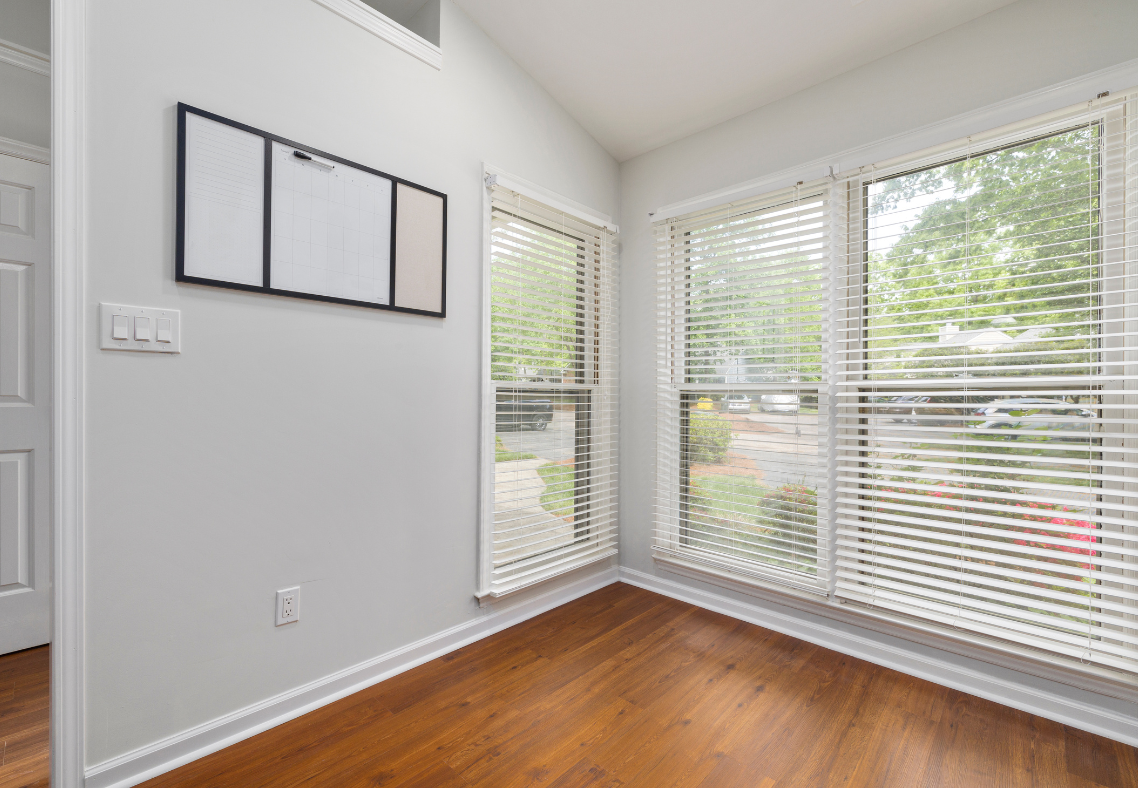What Are The Different Types Of Window Frames?
Roof Right: Exterior Home Remodeling Specialists in Maryland Contact UsSchedule A Free EstimateWhen it comes to window installations or replacements, one of the most crucial decisions homeowners need to make is choosing the right type of window frame. The window frame plays a significant role in the overall performance, appearance, and longevity of your windows. Whether you’re looking for enhanced energy efficiency, improved aesthetics, or better durability, understanding the different types of window frames is essential. For homeowners in Maryland, where the weather varies dramatically from hot summers to freezing winters, selecting the right window frame can also improve your home’s comfort and energy efficiency. In this article, we’ll explore the different types of window frames available, along with their pros and cons, so you can make an informed decision for your home. From vinyl and aluminum to wood and fiberglass, each material offers unique benefits. Let’s dive into the options.
Answering The Question: What Are The Different Types Of Window Frames?
Vinyl Window Frames
Vinyl is one of the most popular choices for window frames, and for good reason. Made from polyvinyl chloride (PVC), vinyl window frames are highly durable, low-maintenance, and energy-efficient. They are particularly well-suited for Maryland homeowners because they resist the effects of extreme temperatures, moisture, and UV rays, making them an excellent choice for the state’s diverse climate.
Pros of Vinyl Window Frames
- Energy Efficiency: Vinyl window frames offer excellent insulation, which helps reduce heating and cooling costs throughout the year. Many vinyl frames are designed with multi-chambered profiles that enhance their thermal performance.
- Low Maintenance: Unlike wood, vinyl frames require little to no maintenance. They don’t need to be painted, stained, or sealed, and they resist issues like warping, rotting, and corrosion.
- Affordability: Vinyl frames are one of the most cost-effective window options on the market, offering a high return on investment without sacrificing quality.
- Durability: Vinyl is resistant to moisture, pests, and temperature changes, making it a long-lasting choice for homeowners in Maryland.
Cons of Vinyl Window Frames
- Limited Aesthetic Options: While vinyl frames come in various colors, they don’t offer the same customizable options as wood. If you’re looking for a specific architectural look or natural appearance, vinyl may not provide the versatility you need.
- Expansion and Contraction: Vinyl can expand and contract with temperature fluctuations, which could affect the window’s performance over time. However, modern vinyl frames are designed to minimize these effects.
Aluminum Window Frames
Aluminum window frames are known for their sleek, modern appearance and exceptional strength. These frames are lightweight yet durable, making them a popular choice for commercial buildings and contemporary homes. In Maryland, aluminum frames are often used in areas that experience milder weather, as they are less insulated compared to other materials.
Pros of Aluminum Window Frames
- Strength and Durability: Aluminum frames are highly durable and resistant to damage. They are ideal for larger windows or homes that feature expansive glass walls, as the material can support heavier loads.
- Low Maintenance: Aluminum window frames are resistant to rust, rot, and corrosion. They don’t require the same level of upkeep as wood frames and can withstand harsh weather conditions.
- Modern Appearance: The slim, sleek profile of aluminum frames allows for larger glass panes, giving your home a modern, clean look with plenty of natural light.
Cons of Aluminum Window Frames
- Poor Insulation: Aluminum is a poor insulator, meaning it doesn’t offer the same energy efficiency as materials like vinyl, wood, or fiberglass. In Maryland’s colder winters, aluminum frames may lead to higher heating costs.
- Condensation Issues: Because aluminum conducts heat, it can be prone to condensation in colder temperatures. This can potentially lead to moisture-related problems, such as mold or mildew around the window.
- Higher Cost: Aluminum window frames can be more expensive than vinyl, making them a less budget-friendly option for homeowners.
Wood Window Frames
Wood window frames are a classic choice that offers natural beauty and warmth. They have been used for centuries and remain a favorite for homeowners who want a traditional or elegant look. For homes in Maryland with historical or architectural significance, wood window frames can enhance the property’s value and curb appeal.
Pros of Wood Window Frames
- Aesthetic Appeal: Wood frames offer a timeless, traditional appearance that suits a variety of architectural styles. They can be stained or painted to match your home’s interior or exterior decor.
- Natural Insulation: Wood is an excellent insulator, providing energy efficiency that helps keep your home warm in the winter and cool in the summer.
- Customizability: Wood frames can be easily customized to fit your exact specifications. Whether you need a specific shape, size, or finish, wood offers the most flexibility in terms of design.
Cons of Wood Window Frames
- Maintenance Requirements: One of the biggest downsides to wood frames is the high level of maintenance required to keep them looking and performing their best. Wood needs regular painting, sealing, and protection from moisture to prevent rotting, warping, and insect damage.
- Cost: Wood window frames are typically more expensive than vinyl or aluminum frames, both in terms of upfront costs and ongoing maintenance.
- Vulnerability to Moisture: In Maryland’s humid climate, wood window frames can be susceptible to moisture damage if not properly maintained. Over time, they may swell, crack, or rot due to exposure to the elements.
Fiberglass Window Frames
Fiberglass window frames are gaining popularity among homeowners due to their impressive strength, durability, and energy efficiency. Made from reinforced glass fibers, fiberglass frames are strong and resistant to a wide range of environmental factors, making them ideal for Maryland’s varying climate.
Pros of Fiberglass Window Frames
- Energy Efficiency: Fiberglass frames offer excellent insulation, comparable to wood and better than aluminum. This helps maintain a consistent indoor temperature, reducing energy costs year-round.
- Durability: Fiberglass is highly resistant to moisture, temperature fluctuations, and UV damage. It won’t warp, rot, or corrode, even in Maryland’s humid summers and freezing winters.
- Low Maintenance: Fiberglass frames require very little maintenance. They don’t need to be painted or sealed, and they resist pests and other forms of damage.
- Long Lifespan: Due to their strength and durability, fiberglass frames have one of the longest lifespans of any window frame material. They can last decades without the need for replacement or major repairs.
Cons of Fiberglass Window Frames
- Higher Cost: Fiberglass frames are generally more expensive than vinyl and aluminum. However, their durability and energy efficiency can offset the higher upfront cost over time.
- Limited Color Options: While fiberglass frames can be painted, they come in fewer color options than wood or vinyl, which may limit design choices.
Composite Window Frames
Composite window frames are made from a blend of materials, typically combining wood fibers with synthetic materials like vinyl or resin. These frames are designed to offer the benefits of both wood and synthetic materials, making them an excellent choice for homeowners seeking durability and a natural appearance.
Pros of Composite Window Frames
- Energy Efficiency: Composite frames offer great insulation, similar to wood, helping to improve energy efficiency in your home.
- Durability: Composite frames resist moisture, rot, and weather-related damage. They are less prone to warping and expanding compared to pure wood frames.
- Aesthetic Versatility: Composite frames can mimic the appearance of wood without the high maintenance requirements, offering a natural look with long-lasting durability.
Cons of Composite Window Frames
- Higher Cost: Composite window frames can be more expensive than vinyl and aluminum but are generally more affordable than wood.
- Limited Availability: Composite frames may not be as widely available as other materials, limiting your choices when it comes to specific colors and finishes.
Contact Roof Right For Window Frame Installations In Maryland
If you’re in need of new window frames, Roof Right is here to help. As a trusted roofing and window contractor in Hampstead, Maryland, we have the expertise to guide you through the process of selecting and installing the perfect window frames for your home. Whether you’re looking for energy-efficient vinyl, durable fiberglass, or the timeless appeal of wood, our team has the knowledge and experience to deliver top-quality results.
Don’t wait until your windows are inefficient or damaged. Contact Roof Right today to schedule a consultation and learn more about our window frame installation services. Call us at [your phone number] or visit our website to get started. Let us help you enhance your home’s energy efficiency, appearance, and value with the perfect window frames!
Areas We Serve
If you're looking for a roof contractor in Maryland, give Roof Right a call today at (410)-374-5923 to schedule an appointment!
Carroll County
Howard County
Clarksville, Columbia, Elkridge, Ellicott City, Fulton, Jessup, Laurel, Woodstock
Montgomery County
Baltimore County
Baldwin, Bradshaw, Carney, Cockeysville, Glen Arm, Hunt Valley, Jacksonville, Kingsville, Lutherville, Nottingham, Overlea, Owings Mills, Parkton, Parkville, Perry Hall, Phoenix, Pikesville, Reisterstown, Sparks, Timonium, Towson, White Marsh

